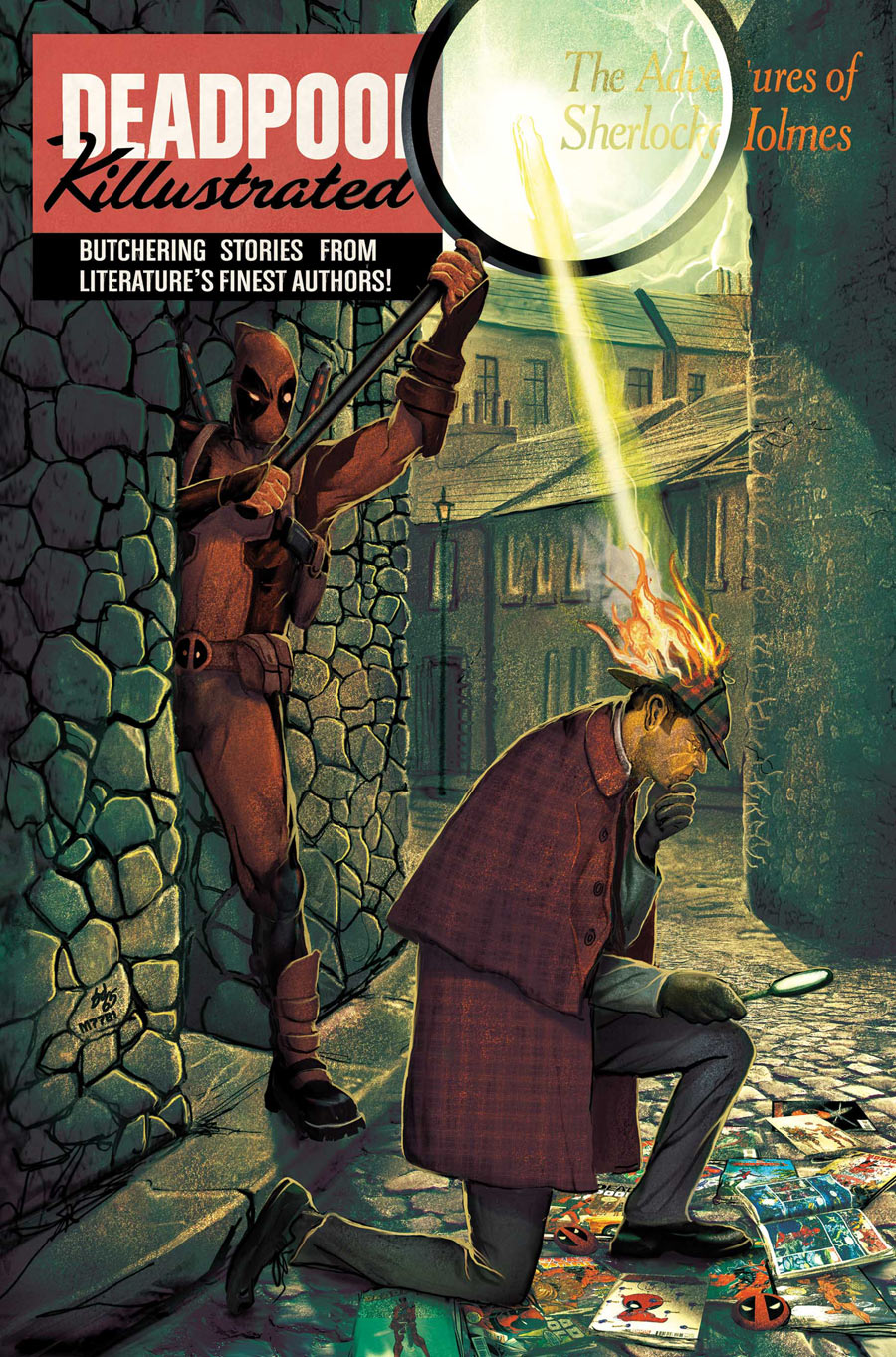The Adventures of Sherlock Holmes
"Chapter IV: What John Watson Had to Tell"
written by Cullen Bunn
pencils by Matteo Lolli
inks by Sean Parsons
colors by Veronica Gandini
And the end...makes no real sense. A summary: Deadpool's mayhem in the Ideaverse is causing confusion about the literary classics, but after Deadpool and his Frankenstein-built partner's altercation with Sherlock Holmes's literary Dream Team—Beowulf, Natty Bumppo, Hua Mulan, and John Watson, ever the odd man out—alongside the Three (well, actually Four) Musketeers, Holmes and Deadpool face off in a Time Machine dead zone, in which Deadpool seemingly wins (and dies), but Holmes saves the day by remembering the stories and "keeping them alive". What?!
I suppose, in the end, it's some kind of call for cultural memory, a challenge to Deadpool Killustrated's readers to pick up Moby Dick, The Iliad, and Great Expectations. It's a tactic—if entirely too Reading Rainbow—that at least recalls its general patronizing attitude toward its readers' literary background. Most of the short series has explained too many of its allusions far too much. It has beaten any alluding detail like a proverbial dead horse, leaving very little incentive for the reader to pick apart its dialogue or illustrations for further jokes. Some of this is Deadpool's fault, since he's never been a character particularly fond of subtlety himself, but mostly it reads as Bunn's insistence that his literary cleverness, which wanes significantly with each issue, be fully recognized. The result is just the opposite. Nor are his jokes all that clever anyway. Beowulf ripping off Frankenstein-Deadpool's arm or Watson quipping to Holmes about why he would want to remember the details of The Metamorphosis are about as good as they get. And none are particularly nuanced or meaningful. Allusions remain superficial throughout, and it's genuinely disappointing.
Even the quality and ingenuity of the artwork dwindles as the series progresses. Scenes in early issues, particularly Moby Dick, were impressive and quite beautiful, but Scylla and Charybdis are downright boring and Deadpool's trip to seventeenth-century Paris entirely uninspired. The exception remains Mike Del Mundo's covert art, which continues to be the most clever and dense joke in each issue. Turning a magnifying glass on Holmes himself, scrutinizing a collection of Deadpool comics with his own, and burning him like a six-year-old would an ant colony is both funny and ironic, and ultimately far too good for the content that follows.

No comments:
Post a Comment